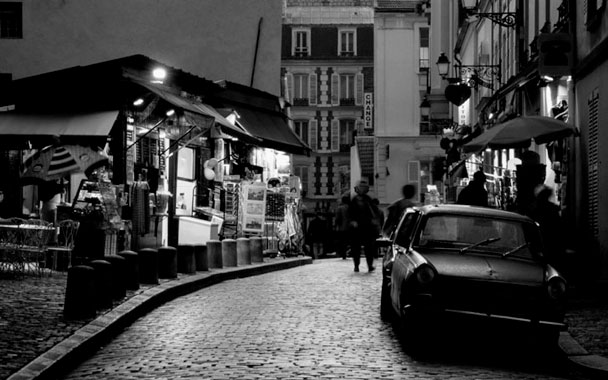I was 34 and lovelorn. Other people, under similar circumstances, turn to midnight snacks, old movies, psychoanalysis, tequila. I moved to Paris.
My hope, to the extent that I had one, was that the mere act of going through the motions in another city, in another language, would turn out to be such a project that it would distract me from my misery. Amazingly, this proved to be true. Every errand, however mundane, required a new vocabulary, words I had never come across in Molière or Baudelaire: tournevis, crochet, marteau for a trip to the hardware store; tache, doublure, before heading off to the dry cleaner.
But the truth is, Paris also took my mind off my troubles in ways that I hadn’t foreseen. Everywhere I looked, there was something urging me to pay attention: a taste, a smell, some subtle flourish that a person trudging through life preoccupied with her own small problems might otherwise miss.
That summer, I sat in my first apartment, a seven-story walk-up half a block from the Seine, and listened through open windows to the chamber-music concerts across the street at the Musée de la Monnaie, with Mozart’s ripe harmonies carried upward on the dense, warm air. Going on midnight, the noise of the traffic was interrupted by lurching, bleating oom-pah-pah renditions of popular standards as the Fanfare des Beaux-Arts, a marching band made up of students from the nearby school of architecture, snaked its way through the narrow streets, its gusto fueled by wine.
Shopping for groceries, I brought home fraises des bois, plump figs from Turkey, and yogurt made from goat’s milk. At the bakery on the corner, I discovered congolais—haystacks of pure, intense coconut. In the Luxembourg Gardens, where I went to run, children sailed their boats in the fountain. When October arrived, I found myself trailing golf carts with a cargo of citrus trees in their jardinières, bound for the Orangerie, where they would sit out the winter; jouncing along the dirt paths, they waved their branches, like stiff arms, in valediction.
My middle-class, middle-American parents had instilled in me the values their parents had instilled in them: honesty, diligence, discipline, thrift, and a particularly Calvinist delight in the virtues of self-denial. All of which, with the sad exception of thrift, had taken root in my soul. We went to church. We played golf. We drank iced tea. The goal was to get ahead. Work was every upstanding person’s reason for being, and pleasure and leisure were the rewards for a job well done. The only possible conclusion to be drawn from this austere outlook on human nature seemed to be that a self was not to be trusted, a self was to be constantly policed and kept in check.
An A student, a workaholic, a chronic dieter locked in a lifelong battle against five extra pounds, I gradually loosened my iron grip, with the French as my example. I envied them their capacity for moderation, a skill that had always eluded me, and realized for the first time that pleasure makes moderation possible. I began building little treats into my day: a walk along a street I loved, to bask in the architecture; 20 minutes with a book in the Tuileries on the way to an appointment; a late-night glass of Champagne at a café; Poilâne’s walnut bread for breakfast.
In my family, flowers were considered a reckless indulgence, unless they came from the garden or if it was Mother’s Day. But in Paris, I met a man whose policy was that no vase should ever go empty. He took to showing up at my door on Friday afternoons, his arms full of roses—an astonishing array of varieties and colors, some with poetic names like Cuisse de Nymphe, the pale pink-beige that evoked the un-exposed skin of a maiden’s thigh. On Saturday mornings, I awoke to the smell of roses before I opened my eyes.



 Pinterest
Pinterest


